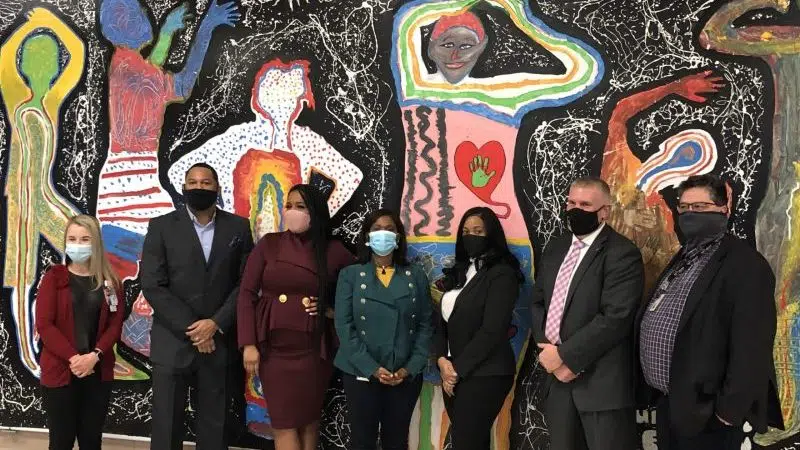PEORIA, Ill. — Thanks to the state of Illinois’ Restore, Reinvest, Renew (R3) program, Peoria Public Schools (PPS) will be the recipient of a $858,669 grant.
The grant was announced Tuesday at a news conference at Trewyn K-8 School, where many local leaders spoke about the money being received.
The R3 program was created in the state when Gov. J.B. Pritzker signed into law legislation that legalized the purchase and use of cannabis for adults 21 and older.
The program provides 25% of cannabis tax revenues for grants to support communities impacted by violence, bolstered by concentrated disinvestment, identified by rates of gun injuries, child poverty, unemployment, and incarceration rates.
“This community, like many other communities, are impacted by the horrors of violence,” said PPS Superintendent Dr. Sharon Desmoulin-Kherat. “Life’s inequities, hardship and suffering are so vast and wide for many of our students and families.”
Grant money will be used to address economic development, violence prevention, re-entry services, youth development and civil legal aid.
“[Grants] will also provide resources to young people who have experienced legal trouble, while also working on preventative strategies,” said Kherat.
An attorney will be provided through the program to clients who qualify, as many individuals do not have the resources or knowledge to navigate the legal process.
Another important focus of the program will be re-entry into society for individuals who have been incarcerated or involved with the judicial system in anyway.
Peoria County Sheriff Brian Asbell says this aspect of the program is one of the most critical.
“We plan to continue addressing major predictable barriers to re-entry, which is housing, employment and education,” said Asbell. “The number one influencer of public safety is employment.
“To have gainful employment, we have to have a strong education system.”
State Representative Jehan Gordon-Booth was on hand to discuss the importance of the program being created in the first place.
“If we were going to be legalizing a product that had been used for the last 80 years, to penalize largely black and brown people, it was incredibly important that we took some of the resources of the sale of this product and begin to reinvest it and repair those communities,” said Booth.
The R3 program will disburse up to $31.5 million to the first round of R3 grantees. Depending on the growth of the cannabis market, the R3 Board could allocate up to $125 million or more in the future.




